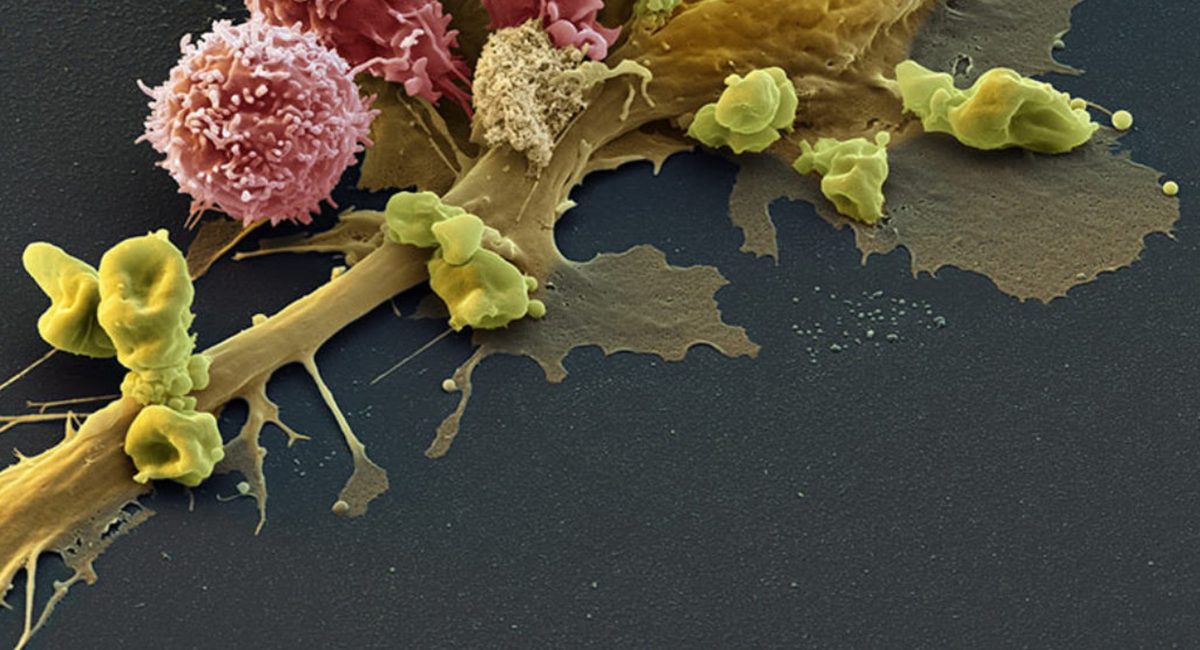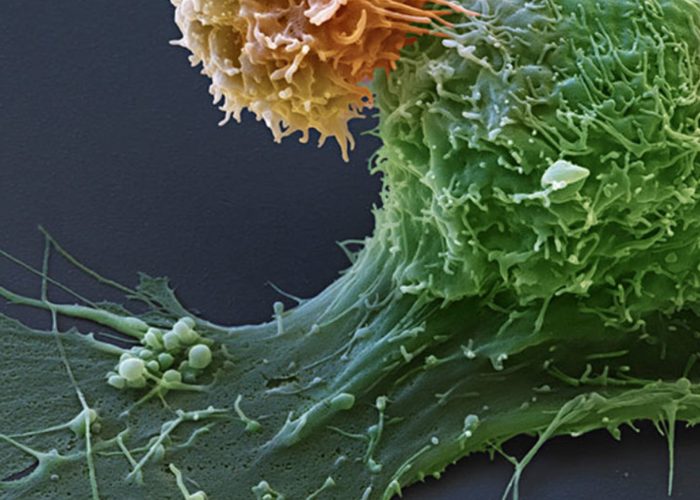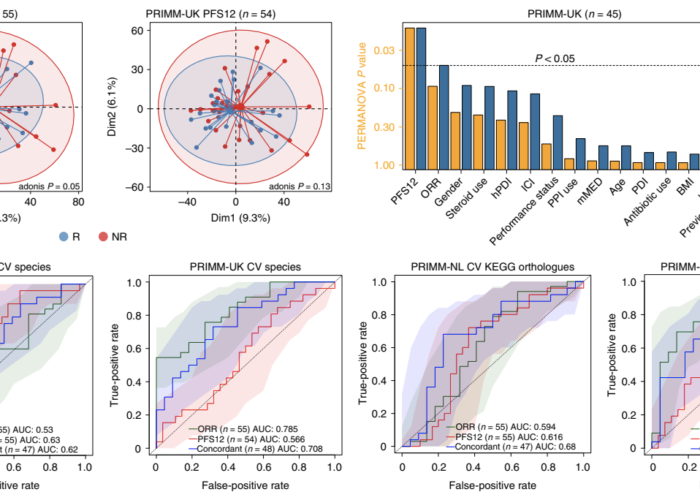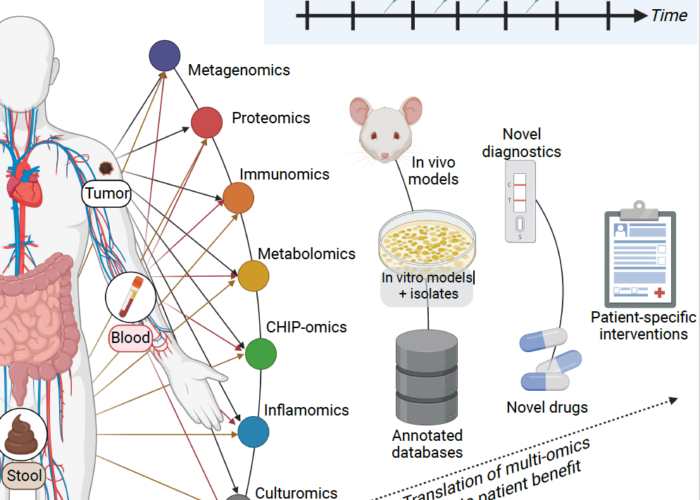The scientists performed metagenomic and metabolomic analysis from stool samples of 39 patients receiving ipilimumab, nivolumab, ipilimumab+nivolumab, or pembrolizumab. Their main findings are that responders to all checkpoint blockers were enriched in Bacteroides cacca (an anaerobic gram-negative bacteria). Unbiased metabolomic analysis further revealed that 15:2 anacardic acid, a nutrient classically derived from cashew nuts and mango, was specifically enriched in responders.
This study represents a proof-of-principle that a better understanding of microbiome composition and function could allow one to optimize immunotherapy approaches in cancer patients in the future. However, more extensive clinical studies with larger cohort sizes and longitudinal sampling will be needed in order to solidify these preliminary observations. Furthermore, pre-clinical studies on how certain bacteria and their metabolites influence immunity on a mechanistic level will be needed to advance the field from correlation to causality.
Metagenomic Shotgun Sequencing and Unbiased Metabolomic Profiling Identify Specific Human Gut Microbiota and Metabolites Associated with Immune Checkpoint Therapy Efficacy in Melanoma Patients. Neoplasia (2017). Frankel, A. E., Coughlin, L. A., Kim, J., Froehlich, T. W., Xie, Y., Frenkel, E. P., & Koh, A. Y.



